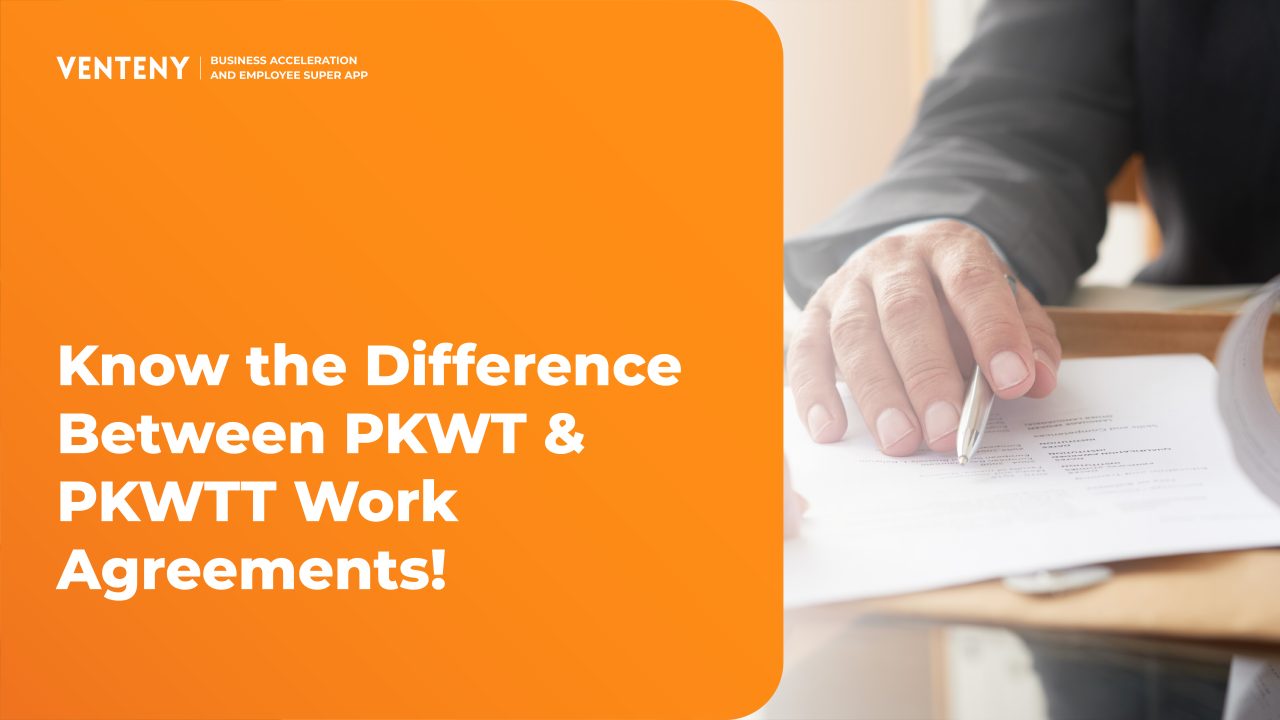Many people, especially those just starting their careers, often think signing work agreements is just a formality. However, what you sign significantly determines your rights, obligations, and even your future career path.
One crucial thing to understand is the type of employment contract you’re offered. In Indonesia, there are two common types: PKWT and PKWTT. Although they may seem similar, they have significant differences you need to know to avoid regret later on.
What is PKWT (Fixed-Term Employment Agreement)?
PKWT stands for Perjanjian Kerja Waktu Tertentu, which translates to Fixed-Term Employment Agreement. As the name suggests, this type of contract has a clear time limit and is typically used for:
- Work that is temporary or seasonal
- Specific projects with a predetermined duration
Under current regulations, PKWT contracts can be made for a maximum of five years, including any extensions. Once that period ends, the employer cannot extend the agreement for the same role unless it’s converted into a PKWTT.
Employee rights under PKWT:
- Salary as agreed in the contract
- Entitlement to annual leave
- Coverage under social security programs
- No severance pay at the end of the contract, unless specified otherwise in the agreement
What is PKWTT (Permanent Employment Agreement)?
Unlike PKWT, PKWTT or Perjanjian Kerja Waktu Tidak Tertentu refers to a Permanent Employment Agreement. This means that your employment relationship has no set end date and continues unless terminated in accordance with proper procedures.
PKWTT contracts are typically granted after a probationary period of 3–6 months, depending on company policy.
Advantages of being a PKWTT employee:
- Greater job stability and security
- Entitlement to severance pay if terminated, as regulated by law
- Broader career development opportunities
- Access to various company benefits, such as additional health insurance or annual bonuses
Tips for Choosing and Understanding Your Contract Before Signing
To avoid feeling “trapped” after signing your contract, keep these tips in mind:
- Read the contract carefully. Never rush to sign without fully understanding every clause.
- Don’t hesitate to ask questions. If there’s any confusing terminology or clauses, clarify them with HR or your employer.
- Consider your career plans. Are you seeking temporary work, or do you prefer the stability of a permanent position?
- Compare the benefits offered. Sometimes, PKWT roles offer higher pay but lack benefits such as severance pay or opportunities for career progression.
- Seek advice if needed. Consult with friends working in HR or seek guidance from a professional.
Conclusion: Don’t Just Agree, Know Your Status
Both PKWT and PKWTT have their pros and cons. A permanent role isn’t always better, nor is a fixed-term contract necessarily worse. It all depends on your personal needs and career goals.
The key takeaway: Don’t sign blindly. Understand your rights and obligations so you can make informed decisions for your future.
I hope you feel more prepared the next time you’re presented with an employment contract.




